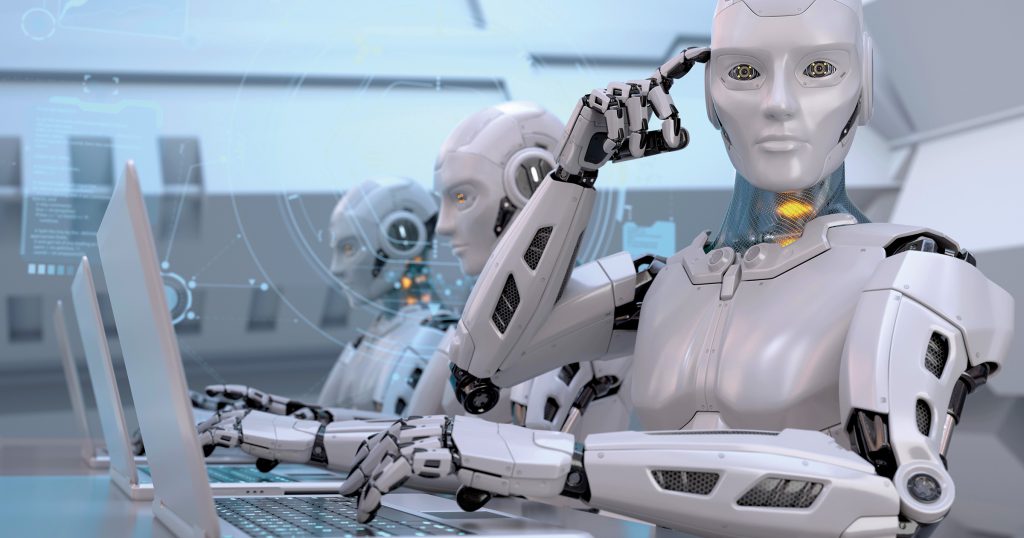Disclaimer: Unless otherwise stated opinions expressed below belong to the author.
Anthropic has just presented a significant update to its Claude AI model called “computer use”—which does exactly what it says: it uses a computer like a human.
It can see the screen, understand what it sees, navigate various software applications, and use a mouse and keyboard to perform tasks required of it.
Unlike existing automation algorithms, it can adapt to what it sees on the fly and search for information on its own, allowing it to work with less supervision. Bearing in mind that it’s only in beta at the moment, it’s not a stretch to think that within a mere few iterations, it’s going to be able to perform most tasks without any human input.
Here’s how it looks like in practice, after being asked to search for company details in an Excel spreadsheet or a CRM:
While the method of taking a screenshot and reading it may appear rather basic at the moment, it does the job and can be automated easily.
Besides that, you can employ such a system to work for as long as it has to to complete the request, while it takes no breaks, eats no lunches, doesn’t have to visit the toilet or go to sleep, and can pretty much do it 24/7.
Even if initially slow, the cost benefits of employing a machine to perform office tasks that are currently performed by humans are enormous. Tens of thousands of dollars in human effort could be replaced by US$1,000-2,000 worth of hardware, Internet access, and electricity.
Sounds like a no-brainer, which is why it should worry those whose job mainly requires the completion of relatively mundane office tasks.
Requirements for humans are going up
Unless you can deliver some unique, intellectual value as a human being, having a career as a white-collar worker may soon no longer be an option for most.
It can also undermine millions of entry-level jobs currently taken by young workers, who start with relatively easy but boring office drudgery before climbing the ranks to take positions requiring more creative input and greater responsibility.
The pressure on skill development is nothing new, of course, and the days when corporations would take in fresh graduates en masse only to teach them what they had to do in house are long gone.
But now you’re going to have to compete with an intelligent bot which can control any software suite it is trained at far better than vast majority of humans—and far more efficiently too.
Some years ago you could get away with basic knowledge of Microsoft’s Office suite. Soon, it may no longer matter if you’re an Excel whiz or can do magic using Adobe software, because AI will be a master in all of these and more.
We can’t compete against machines that can be infinitely trained. At least not on skills.
Better jobs for better humans
These developments are not without positives, though. As intelligent computers take over the most draining tasks, somebody still has to direct them to do what’s required. And that somebody will, at the end of the day, be human.
In other words, workers of the AI era will be required to be more engaged and better understand the business, before directing the artificial workers to do what’s necessary.
This means less boring jobs, less stressful work and improved pay, which always follows higher performance.
Unfortunately, it’s hard to say how many people will be required to do these jobs.
Are companies going to be employing as many as today, but all in more creative work, thus multiplying the output by the value coming from AI automation? Or is the technology going to radically reduce the headcounts for companies to generate the same output at a much lower cost?
The truth is probably somewhere in between, which would still cost many people their career opportunities, although those still employed will enjoy much better conditions and pay.
Either way, until now we merely discussed the future risks of AI taking regular jobs. Yes, many algorithms have been employed in human service for years, even decades. But it’s the first time that we’re on the verge of unleashing one that can perform the very tasks that millions depend on a living for.
The consequences of which we can no longer ignore.
Also Read: Are we safe? AI bot tries to rewrite its own code to cheat the limits imposed by researchers
Featured image: iLexx / depositphotos










